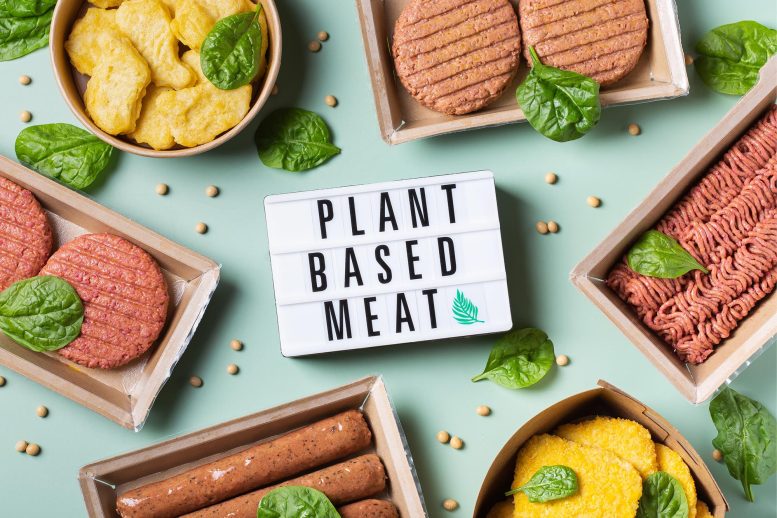
A significant study reveals that plant-based ultra-processed foods are linked to an increased risk of cardiovascular diseases, suggesting a need for dietary shifts towards less processed options.
New analysis of the health impacts of plant-based ultra-processed foods (UPFs) has found they may pose a higher risk for cardiovascular diseases compared to less-processed plant-based foods.
The research, led by the University of São Paulo and involving Imperial College London, used data from more than 118,000 people. It suggests that while plant-based diets are linked with reduced disease risk, overall, UPFs were linked with worse health outcomes.
They find that eating plant-based UPFs was linked with a 7% increase in the risk of cardiovascular diseases, compared with eating unprocessed plant-based foods. They also found that the all consumption of UPFs (animal-based and plant-based) was linked with a higher risk of cardiovascular diseases and dying from these diseases.
Marketing Versus Reality of Plant-Based UPFs
According to the researchers, their findings – published in the journal Lancet Regional Health – indicate that while plant-based UPFs may be marketed as healthy alternatives, they may be linked to worse health outcomes. They add that dietary guidelines should be updated to encourage people to reduce their consumption of UPFs as well as to promote plant-based diets.
Dr. Eszter Vamos, co-author of the study, from the School of Public Health at Imperial College London, said: “Fresh plant-based foods such as fruits and vegetables, wholegrains and legumes are known to have important health and environmental benefits. While ultra-processed foods are often marketed as healthy foods, this large study shows that plant-based ultra-processed foods do not seem to have protective health effects and are linked to poor health outcomes.”
Defining UPFs and Their Impact on Health
Plant-based diets are linked with a reduced risk of cardiovascular diseases, such as heart attacks and strokes. But many plant-based foods, including meat-free alternatives such as some sausages, burgers, and nuggets, can be classified as ultra-processed foods (UPFs), despite often being marketed as healthy options.
UPFs are generally higher in salt, fat, sugar, and contain artificial additives. Previous research has linked UPFs with a range of poor health outcomes, including obesity, type 2 diabetes, cardiovascular disease, and cancer.
Study Methodology and Detailed Findings
In the latest study, researchers from the University of São Paulo in Brazil (USP), Imperial College London, and the International Agency for Research on Cancer (IARC), investigated the potential impacts of plant-based UPFs on health.
Using data from the UK Biobank study, they looked at data for more than 118,000 people England, Scotland, and Wales aged 40 to 69 years who had their diets assessed over at least two days. These data were linked to hospital and mortality records to obtain information on cardiovascular diseases.
Health Outcomes Associated With UPF Consumption
The team looked at the contribution of food items to diet, and classified food items as UPFs, as defined by the Nova classification, and non-UPFs – unprocessed or minimally processed foods, processed culinary ingredients, and processed foods. These groups were further divided into ‘plant-based’ or ‘animal-based’. Plant-based foods composed exclusively or primarily of plant origin (e.g. fruits, vegetables, grains, bread, cakes and sweets, sweetened beverages). Animal-based foods included all meats (fish, poultry, red meats, etc.), dairy and eggs.
The consumption of all plant-based foods together showed no association with any of the related diseases. Eating more plant-based non-UPFs was linked to better health outcomes, and replacing plant-based UPFs with plant-based non-UPFs was linked with a 7% lower risk of developing cardiovascular diseases and a 15% lower risk of mortality associated with these conditions. However, consumption of plant-based UPFs was associated with an increased risk of both outcomes.
Analysis showed that increasing the dietary contribution of plant-based non-UPFs by 10% was also associated with a 13% reduction in mortality from all cardiovascular diseases, with a 20% reduction in mortality caused by coronary heart disease.
Recommendations for Dietary Guidelines
Dr. Fernanda Rauber, a researcher at USP and first author of the study said: “Despite being plant-based, these foods can contribute to risk factors such as dyslipidaemia and hypertension due to their composition and processing methods. Food additives and industrial contaminants present in these foods can cause oxidative stress and inflammation, further aggravating the risks. Therefore, our results support the shift towards plant-based food choices that consider the degree of processing to improve cardiovascular health outcomes.”
Conclusion and Future Implications
The researchers say that, based on the available evidence, nutritional guidelines promoting plant-based diets should focus not only on reducing the amount of meat and other animal-products people eat, but also on the importance of the level of processing involved in the food, and avoiding UPFs.
Dr. Renata Levy, a professor at USP, said: “The study aimed to fill the gap in the evidence regarding the consumption of ultra-processed plant-based foods and their impacts, especially when it comes to cardiovascular diseases. Research like this is essential for guiding public policies. In this case, we have yet another strong argument to encourage the reduction of ultra-processed food consumption, regardless of whether it is of animal or plant origin.”
Reference: “Implications of food ultra-processing on cardiovascular risk considering plant origin foods: an analysis of the UK Biobank cohort” by Fernanda Rauber, Maria Laura da Costa Louzada, Kiara Chang, Inge Huybrechts, Marc J. Gunter, Carlos Augusto Monteiro, Eszter P. Vamos and Renata Bertazzi Levy, 10 June 2024, The Lancet Regional Health – Europe.
DOI: 10.1016/j.lanepe.2024.100948
The research was funded by the World Cancer Research Fund.
1 Comment
OK you kindergarteners with PhD’s, let’s repeat this again….
PROCESSED food bad.
NATURAL food good.